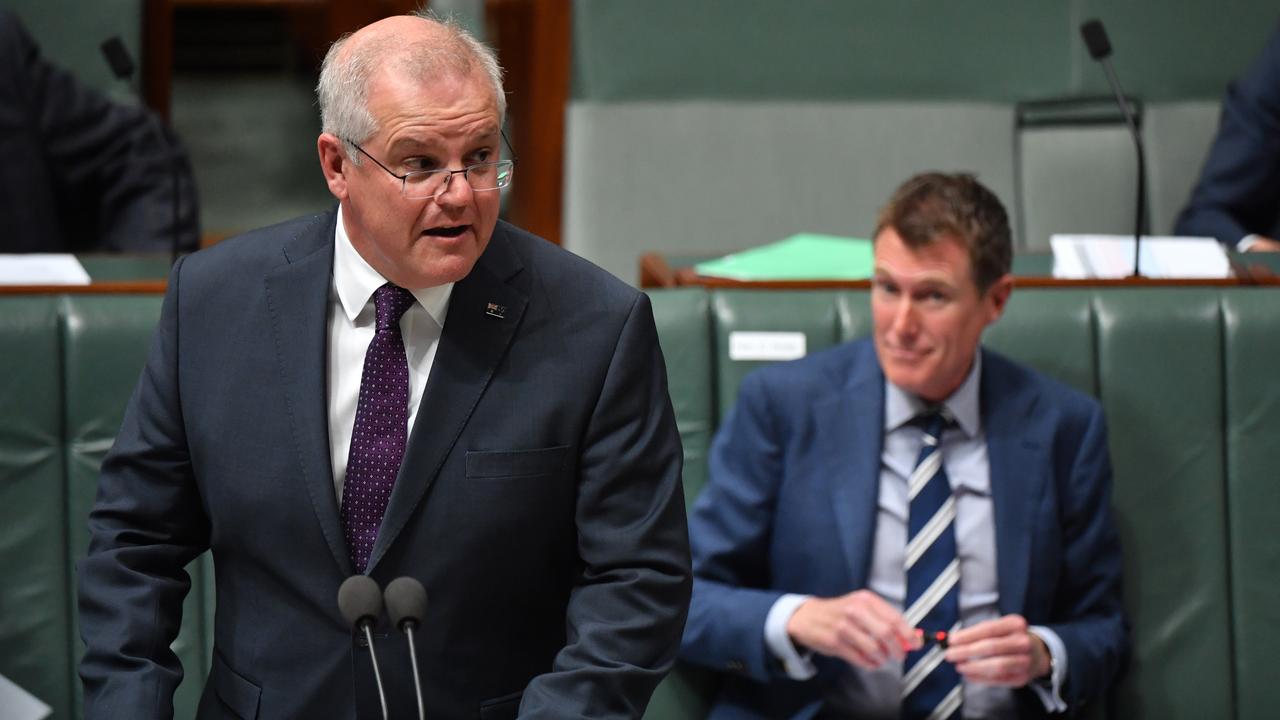Aussie workers could face COVID pay cuts due to new laws giving bosses power to make unfair deals
New laws would allow bosses to strike deals that leave workers worse off because of the ‘exceptional circumstances’ of coronavirus.
Workers could face COVID-19 pay cuts under new laws to allow bosses to strike deals that leave some workers worse off, in a move unions claim is the worst attack on employee rights since WorkChoices.
The changes, which are supported by business groups, will grant the Fair Work Commission (FWC) power to approve deals that do not comply with the Fair Work Act’s better-off-overall test (BOOT) for two years under ‘exceptional circumstances’.
The Australian Council of Trade Union secretary Sally McManus said the laws will allow employers to make agreements that cut the wages and conditions of workers.
“These changes are dangerous and extreme. WorkChoices allowed employers to cut wages, and this proposal will do that as well,’’ Ms McManus said.
“When WorkChoices was introduced, employers rushed out to cut wages, the same will happen if this law passes. Some workers are still stuck with WorkChoices pay cuts some 13 years later.”
RELATED: Industrial Relations Minister Christian Porter unveils casual work reforms

Industrial Relations Minister Christian Porter said it was the right time to change the rules to help employers hit hard by the COVID-19 pandemic.
“Given that many industries are still reeling from the impacts of the pandemic, it also makes good sense for the Fair Work Choices to be able to consider agreements that don’t meet the BOOT if there is genuine agreement between all parties,’’ Mr Porter said.
“This measure will help to save jobs by giving those businesses that are still in some form of distress access to vital flexibilities while they recover. Placing a two-year time limit on such agreements will also ensure workers are not disadvantaged.”
But Ms McManus also accused the Morrison Government of ambushing the union movement.
“These proposals were never raised during months of discussions with employers and the Government,’’ she said.
“Working people, essential workers, have already sacrificed so much during this pandemic, these proposed laws will punish them.”
RELATED: PM’s industrial relations reform plan ‘chilling’, Labor says

Indeed, as recently as October, The Australian Financial Review reported Mr Porter had ruled out fundamental changes to the better off overall test in a story headlined: ‘Porter rules out giving the BOOT test the boot,’
News.com.au reported in May that the Prime Minister had left the door open to scrapping the BOOT test.
Asked if he was considering dumping that protection, Mr Morrison said the best protection workers had was a job.
“And I know one thing: If you’re not in a job, you’re not better off. If you lose your job, you’re not better off,’’ he said.
The legislation unveiled overnight by the Morrison Government refers to “exceptional circumstances” as being one reason to not meet the better off overall test leaving the door wide open for bosses to cut pay and conditions as a result of COVID-19.
“The FWC may approve the agreement under this section if the FWC is satisfied that, because of exceptional circumstances, the approval of the agreement would not be contrary to the public interest,’’ the law states.
“An example of a case in which the FWC may be satisfied of the matter referred to in subsection (2) is where the agreement is part of a reasonable strategy to deal with a short-term crisis in, and to assist in the revival of, the enterprise of an employer covered by the agreement.
The BOOT is a creature of the Rudd Government’s industrial relations laws but it was first introduced in real terms during the Keating Government.
It was former Prime Minister Paul Keating who introduced the no disadvantage test (NDT) – in the 1993 legislation that introduced enterprise-level bargaining.
It required only that any agreement not reduce employees’ overall terms and conditions of employment relative to their awards.
In 2006, Prime Minister John Howard dumped the NDT in the WorkChoices legislation, a decision that was central to Labor’s victory and the defeat of the Howard Government just a year later in 2007.
Stung by a backlash to the 2006 WorkChoices changes, Mr Howard had introduced a Fairness Test, which resurrected much of the previous no disadvantage test but it was too late to turn the tide.
In 2008, the Rudd Government scrapped the Fairness Test, and introduced the BOOT, which requires each employee to be better off overall under the proposed agreement than their award.
Critics have argued that the rule is a drag on enterprise bargaining agreements being struck because it has become too onerous for employers to meet in complex awards.
As a result, employer groups have complained that fewer enterprise bargaining agreements are being struck and pushed for the sort of changes announced by the Morrison Government.
Unions argue the changes announced will also weaken the current protections and safeguards workers have to stop employers imposing unfair agreements.
Currently the Fair Work Commission must ensure workers have access to an agreement for seven days and it must be properly explained to workers before voting, these requirements will be removed.




